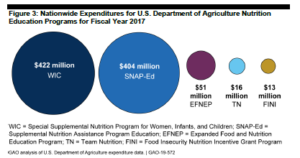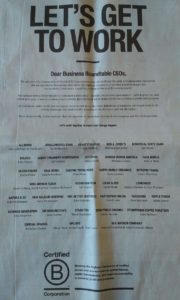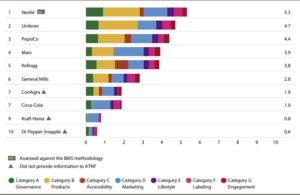FoodNavigator-USA’s articles on food litigation
Food law used to be so boring that hardly any law schools taught anything about it. Now it’s a hot topic. To understand why, take a look at FoodNavigator-USA’s collection of articles, titled Food in the dock: Food & beverage litigation
- Judge says lawsuit taking issue with added sugar levels in Clif Bar can proceed: A court has rejected Clif Bar’s motion to dismiss a lawsuit* accusing it of duping consumers by presenting bars that are “loaded with sugar” as wholesome and nutritious – allegations the company describes as “absurd” and “implausible.”.. Read
- General Mills prevails in false ad lawsuit over sugar content in cereals… after three-year battle: <General Mills has finally prevailed in a false advertising lawsuit* over sugar levels in its cereals after three years of legal wrangling, with the judge concluding that the plaintiffs “cannot plausibly claim to be misled.”..
- Who is behind THC-infused STONEY PATCH gummies? Mondelēz Canada secures court order to find out: A California court has granted a request from Mondelēz Canada to compel Facebook and Google to release information associated with Instagram and Gmail accounts of a company selling THC-infused gummies under the STONEY PATCH brand… Read
- Tillamook presents deceptive image of milk sourcing strategy, alleges lawsuit; Tillamook ‘adamantly disagrees’: Tillamook presents a bucolic image of a dairy brand sourcing milk from cows grazing on local small farms, when in fact most of its milk comes from industrial scale factory farms, alleges a lawsuit accusing the firm of deceptive practices… Read
- LaCroix: Natural flavors lawsuit is a ‘classic fishing expedition’: The legal dispute over the ‘natural’ credentials of LaCroix sparkling beverages is heating up with brand owner National Beverage Corp urging a court in Illinois to enter a protective order shielding it from discovery that it claims would compel it to release trade secrets… Read
- Plant-based ‘meat’ battle heats up in Arkansas as Tofurky challenges ‘unconstitutional’ law: A law (Act 501) coming into force in Arkansas on July 24 puts plant-based brands between a rock and a hard place by restricting the use of ‘meaty’ terms to products derived from slaughtered animals, alleges a new lawsuit filed by Turtle Island Foods (d.b.a. Tofurky)… Read
- PBFA and Upton’s Naturals challenge Mississippi law restricting plant-based and cell-cultured ‘meat’ labeling: The Plant Based Foods Association (PBFA) and member company Upton’s Naturals have filed a lawsuit in Mississippi challenging a new labeling law that could make using ‘meaty’ terms to describe plant-based and cell-cultured meat subject to criminal penalties… Read
- Fairlife fallout… attorneys weigh in as the lawsuits pile up: Four class action lawsuits have already been filed against high-protein milk brand fairlife, its founders, and JV partner Coca-Cola over alleged animal abuse at its flagship dairy farm in Indiana, but this could be just the beginning of the company’s legal problems, predict experts… Read





